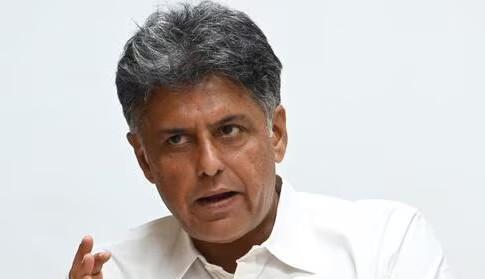
Against Constitution: Tewari on Bills to Remove Jailed PM, CMs
In a stern warning, Congress MP Manish Tewari has expressed his strong opposition to the three bills presented in Parliament by Union Minister Amit Shah, aimed at removing Prime Ministers, Chief Ministers, and Ministers facing serious criminal charges. Tewari, a seasoned politician and a respected voice in the Indian Parliament, has termed these bills as “against the basic structure of the Constitution.”
The bills, which were introduced in the Rajya Sabha on Tuesday, propose to amend Article 75, Article 164, and Article 164A of the Constitution. The amendments seek to empower the President to remove the Prime Minister, Chief Ministers, and Ministers from office if they are facing serious criminal charges. The bills also provide for the Speaker of the Lok Sabha and the Chairman of the Rajya Sabha to initiate proceedings for the removal of the Prime Minister and the Chief Ministers, respectively.
Tewari, while speaking in the Parliament, emphasized that the Indian Constitution is based on the principle of “innocent until proven guilty.” He argued that these bills undermine this fundamental principle and create a potential for misuse of state instrumentalities.
“The Constitution says that one is innocent until proven guilty,” Tewari said. “If someone is accused of a crime, they are entitled to the presumption of innocence. These bills seek to reverse this fundamental principle and create a situation where someone can be removed from office without being found guilty of a crime. This is a dangerous precedent that can lead to arbitrary and unjust decisions.”
Tewari also pointed out that the bills do not provide any clear definition of what constitutes “serious criminal charges.” This, he said, creates a potential for misuse of the provisions and arbitrary removal of political opponents.
“The potential for misuse of state instrumentalities under these bills is enormous,” Tewari warned. “They can be used to target political opponents, silence dissenting voices, and undermine the rule of law. This is a grave danger to our democracy and we cannot allow it to happen.”
Tewari’s opposition to the bills is not unexpected. The Congress party has long been critical of the government’s attempts to undermine the Constitution and the institutions of democracy. The party has been vocal in its opposition to the government’s efforts to weaken the judiciary, the Election Commission, and other institutions that are essential to the functioning of democracy.
The ruling BJP, on the other hand, has defended the bills as necessary to ensure accountability and transparency in government. The party has argued that the bills are aimed at removing corrupt politicians from office and restoring public trust in the government.
However, Tewari’s concerns are not without merit. The bills do create a potential for misuse and undermine the fundamental principle of “innocent until proven guilty.” They also raise questions about the role of the President and the Speaker/Chairman in initiating proceedings for the removal of the Prime Minister and the Chief Ministers.
The opposition to the bills is not limited to the Congress party. Several other opposition parties, including the Left, the CPI(M), and the Trinamool Congress, have also expressed their concerns about the bills.
The government, however, remains committed to pushing the bills through Parliament. Amit Shah, while presenting the bills in the Rajya Sabha, said that they were necessary to ensure accountability and transparency in government. He argued that the bills would help to remove corrupt politicians from office and restore public trust in the government.
The debate on the bills is likely to continue in the coming days. As the opposition parties continue to express their concerns, it remains to be seen whether the government will be able to push the bills through Parliament.
In conclusion, Manish Tewari’s opposition to the bills is a timely reminder of the importance of upholding the Constitution and protecting the fundamental principles of democracy. The bills, as they stand, create a potential for misuse and undermine the principle of “innocent until proven guilty.” It is essential that the government takes Tewari’s concerns seriously and revises the bills to ensure that they are consistent with the Constitution and the principles of democracy.






